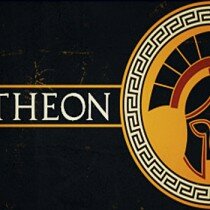Tower Defense games are the hot dogs of the video game world. And by that I mean that they are readily availible from nearly any source because of their cheapness in both material and preparation. There’s a good reason that the early days of Battle.net were flooded with thousands of variations of Tower Defense games, few of which were very good. But the genre did start to evolve and remained popular with players on Battle.net until DOTA came along and killed all fun. Tower Defense now lives on thanks to its simplicity and easy nature. Its a fun, time consuming genre that translates wonderfully to cell phones meaning its enjoyed by normal people as well as inert gastropods such as myself. This weeks game is actually a port of a cell phone game that was given a slight make over to make it palatable for PC. Defense Technica is its name and towers shooting at aliens is its game.
Right off the bat Defense Technica wowed me. Wow, I exclaimed when I noticed that the accept and decline hotkeys in the corner were using buttons from a Playstation duelshock controller. Imagine my disappointment when pressing O and X didn’t actually do anything! Wow, I exclaimed again when during the first levels tutorial I was prompted to “Press the to open tower menu.” That’s not a typo or grammatical error on my part, and I wish I had screen grabbed that but alas I failed you all again. Point is, the games got some mistakes. Frequently the pop up tutorials failed to contain the information it hoped to say. Buttons wouldn’t actually do anything even though it claimed they would and other times I had to face roll the keyboard to figure out just what it wanted. Thankfully my mocking condescension of the game faded once it actually let me play it.
There are 2 kinds of Tower Defense games: One that lets you build the towers wherever you want and design your own personal spider-web labyrinth for the computer to worm through, and others that keep the tower location fixed and you have to plan things out a bit differently. Defense Technica is the latter. The spots you can build towers are dependent on the map and you’ll have to quickly figure out where to place towers to be most effective. This is aided by the game showing you in a bright red line where the enemy is going to go. I’m not too great at Tower Defense games despite my love of them but I had pretty good luck strategically blocking paths and bottle necking the bastards into big damage traps or along such long tedious paths that I could slowly chip them down. At least this worked for the first couple levels then the game seems to ratchet up the difficulty to 11, and then again several levels later.
 Oh I know Tower Defense, Mister….
Oh I know Tower Defense, Mister….I’ve done Wintermaul, Deathmaul, Narutomaul, Shoppingmaul, Orcmaul, DBZmaul, LOTRmaul, Monopolymaul…..
One thing I did truly love about the game though is that you can upgrade your towers. This seems pretty worth it as the damage increase really shows. It also makes the towers look slightly different and more bad ass which isn’t TOO noticeable in the heat of the game but is none the less a fun little bit of flavor. This is also the one thing I liked about Skyward Sword so maybe I’m just a sucker for collectables and upgrades. The graphics are pretty good all things considered, nothing to write home about but worth noting. The game also has a story of some kind. It’s not told through cutscenes or dialogue, just some flavor text for each level. So basically the story matters about as much as the story in Tetris or the points in “Whose Line is it Anyway.”
Overall, it’s an enjoyable enough game. If you love Tower Defense it might be worth scooping up if you have some extra money. If you are bad at Tower Defense then prepare for a pretty harsh difficulty spike to bite you every couple of levels.
Defense Technica is available now on Steam for $14.99.
© 2013 – 2014, zero1gaming.com. All rights reserved. On republishing this article your must provide a link to this original post
About Kimo Kuppe
Kimo is a contemptuous old coot. With experience in video games dating back to 1988 and a schizophrenic range of games he boasts an impressive range of knowledge of gamings best, and worst. Dwelling in the desolate wastes of the American Midwest he brings to Z1Gaming a perspective that looks for positive qualities in even the worst games.
•




